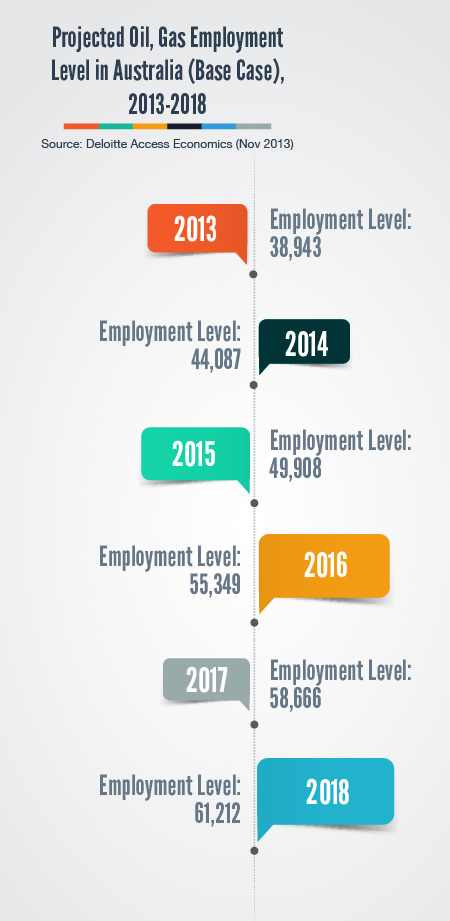Your startup needs a human resources department. But in lieu of one, here are some tricks to encourage employee engagement, retention, and team collaboration
Former General Electric CEO and big name in business coaching Jack Welch said, “Without doubt, the head of HR should be the second most important person in any organization.” And yet, like the misguided “those who can’t do, teach” axiom, we like to cast aside human resources as the C students in business school. That’s a mistake.
In reality, human resources is probably the most under-utilized branch of any organization. Ande in the startup world, which spends so much time focusing on hiring the CTO, CFO, and heads of sales and marketing, human resources becomes a complete afterthought. That’s an even bigger mistake.
“Even if your company is too small to have its own HR department, somebody has to be doing HR,” Welch wrote in his book Winning. He thinks there are three reasons an HR team is the most commonly undervalued one:
1. Human resources is hard to quantify.
2. Human resources is just administrative tasks.
3. Human resources is a mix of town crier and your favorite soap opera.
Yes the human resources department usually handles the always important tasks of hiring and payroll, but there’s more purpose in what they do.
What should be the true purpose of HR?
Human resources should work to encourage employee retention, team collaboration and intrinsic motivation. A good HR department (or acceptable replacement) will:
– Mediate differences and disagreements between teammates
– Help managers nurture leaders and advance careers
– Lend an ear to employee feedback (and venting)
– Guide processes for offering feedback to your employees
– Drive overall motivation for the company
In pretty much every startup or small business I’ve worked with, either the CEO or his lackey did the basic functions of HR — payroll and signing paychecks, tax paperwork, made final hiring and firing decisions — while nobody performed any of those five equally important HR duties.
I’ve learned that if you don’t pay someone, they’ll leave immediately; if you don’t acknowledge their work and nurture their growth, they’ll leave eventually. When your team is so small, you simply cannot afford to risk demotivating or losing staff.
How to act the human resources role if you can’t afford to hire someone
If you can’t afford contracting a full-time HR person, there is definitely more you can do as the CEO of your small business. The responsibility of catering your business to your human resources also lies with all team members: You just need to provide them the tools and education to do just that.
Publicly acknowledge teammates
A rather pessimist species, human beings lose an assumption of value at a rather young age. We are more likely to assume we are doing something wrong if we hear nothing. And when we do receive recognition, it’s often given in private, which does nothing for team building either. Acknowledging our colleagues must be a group effort, where everyone has an equal opportunity to celebrate successes regularly.
Some offices have a bell or a gong that anyone can ring when they have something exciting to announce. Other offices have what Virgin calls Rippas or many other call Kudos. Simply set up a slotted box where people can add their own small notes of thanks and acknowledgement. At the end of the month, you can have a small celebration, reading aloud what colleagues have written — maybe even using it as a raffle for a small prize like movie tickets or leaving a couple hours early next Friday — or you can proudly display the Kudos in a break room or your front lobby.
Work on a remote team? Use this free Kudo Box tool to tweet your gratitude!
Offer feedback early and often
“Performance appraisal has become more than a management tool. It has grown into a cultural, almost anthropological symbol of the parental, boss-subordinate relationship that is characteristic of patriarchal organizations.” – Abolishing Performance Appraisals by Tom Coens and Mary Jenkins.
Things move way too fast in the startup world to wait for annual performance appraisals: It’s simply too little too late. And let’s face it, both sides find them incredibly uncomfortable. So, how can an alternative to performance appraisals fit into your already overbooked entrepreneur schedule?
First, performance conversations must happen at least quarterly, so goal-setting and progress reviews are as agile as your business. That feedback must be offered based on specific observations and come paired with suggestions for improvement. And since every team member is really busy, when you want something to be understood and remembered, write it down. We have this neat tool where we can email feedback, but remember that you need to then take extra care to put it in the right context and portray the right emotional intent.
“Among systems thinkers, it is well-known that 95 percent of the performance of an organization is the result of the whole system, not the individual people. It makes little sense to have performance appraisals with individual employees!” argues management guru Jurgen Appelo. But since we’re stuck with something like them, he suggests you end each conversation with what he calls a Feedback Wrap, which involves staying focused on both personal improvement and systematic improvement.
Find out what perks they really want
Sure we’d all enjoy an on-site masseuse like Google or remote-controlled stand-up workstations like Zendesk, but would that make us better workers? Others would love a quiet room with a sofa or beanbags that gives them a place to decompress or catnap. Maybe they want the coworking classic of a ping pong table (or maybe that’d really drive them nuts.) Some would rather work 45 minutes later Monday through Thursday in order to get out at lunchtime on Friday. Maybe they’d like a monthly potluck or holiday celebration. Maybe they’d like to create a company basketball team with matching t-shirts.
Or maybe they would be really motivated by the freedom to take a day off without giving notice or knowing that they have a literal stake in the company by being given stock options.
A lot of CEOs try to mimic what the “cool kids” like Google, Apple or Lego are doing, but what works for them won’t necessarily work for your team. It’s important that you talk to your team and find out what they’d really like, what would make them more comfortable so they could focus on work.
How do you do HR?
I love this quote from the Founder Institute: “Your company is only as good as the people building it.” Yes, I know you’re busy, but your team — not the customers, not the product — is the most important part of your business. Each of these tricks, like all good long-term motivation practices have these things in common:
– They only take a few minutes’ commitment a week
– Involve the whole team
– Treat everyone as equal
– Have open lines of communication
– Build trust
What are your HR hacks for the bootstrapped startup?
The views expressed are of the author.
Geektime.Com
Say ‘yes’ to no: 6 ways to say ‘no’ at work and still get ahead
There are ways to break the habit of saying yes and get your life back, without giving up your career goals.
When did “no” become a four-letter word? It seems like only yesterday when Nancy Reagan was on a very special episode of “Diff’rent Strokes” to talk to Gary Coleman about the virtues of saying no. (Those were the days, eh?)
If only the former first lady were around today to speak with today’s working professionals about just saying no at work. In addition to steering them away from drugs, she could also advise them to steer clear of taking on extra work, which (not unlike drugs) can so often take a toll on workers’ stress levels and productivity.
Despite their already full workloads, tight deadlines and packed schedules, many working professionals have a hard time saying no, for fear of missing out on opportunities and damaging their professional image. Contrary to popular belief, however, saying no doesn’t have to be a bad thing. In fact, it can be incredibly empowering, says Scott Fetters, founder of High Five Digital Marketing.
“Saying no is your battle shield for deflecting distractions, staying true to yourself and sticking to the course,”Fetters writes.
Not to mention that it’s also one’s right to say no. Saying no, however, does not come easy -- especially in the workplace.Women in particular have a hard time saying no -- perhaps due to a learned habit of trying to please everyone or an inherent fear of hurting other people’s feelings. Fortunately, there are ways to break the habit of saying yes and get your life back, without giving up your career goals.

Six ways to say no at work and still get ahead:
1. Shift your mindset. Don’t think of saying no as giving up or giving in. Look at it as a way to free up time for what’s truly important to you. “Some of us have a hard time saying no because we hate to miss an opportunity,”says HBR’s Peter Bregman. But saying no isn’t about missing an opportunity -- it’s about making a choice and opening yourself up to a different opportunity.
2. Take pride in saying no. Many people hesitate to say no for fear of losing respect from colleagues or their manager, when in reality, saying no can have the opposite effect. Saying no “shows you have a vision, a plan and an opinion,” Fetters says.
3. Be clear. One of the reasons women hate to say no is fear of hurting someone else’s feelings. But when you say no, you’re not rejecting that person -- just the request. So be clear and explain -- honestly -- why you’re rejecting the request.
4. Don’t feel guilty. Remember: You have a right to say no. Don’t feel guilty for saying no. After all, if you say yes to work and you don’t have the time, resources or energy needed to produce a quality result, isn’t that more unfair to the person whose request you’re accepting than saying no?
5. Choose the right words.When saying no, use the phrase “I don’t” instead of “I can’t,” which research shows is a more effective way to say no. As Heidi Grant Halvorson, director of the Motivation Science Center at Columbia University, explains, “‘I don’t’ is experienced as a choice, so it feels empowering. It’s an affirmation of your determination and willpower. ‘I can’t’ isn’t a choice … [It] undermines your sense of power and personal agency.”
6. Know when to say yes.Say yes only to the projects you truly want to take on, says career expert Lindsay Olson. “Before you say yes to something,” she suggests, “pause a moment and ask yourself whether this is truly something you want to do, or whether you simply feel obliged to say yes to it.”
(Picture Source: Internet)
HRVietnam - Collected

















